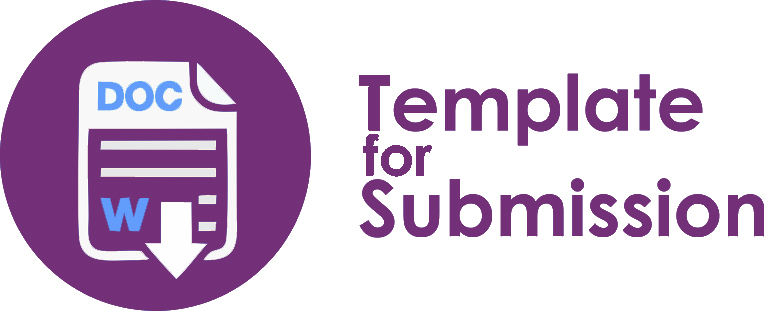Analysis of the Influence of TikTok Social Media Application Usage on Academic Achievement Among @Perkedel69 Followers
DOI:
https://doi.org/10.46229/elia.v5i1.995Keywords:
Academic, Achievement, Social Media, TikTok, EducationAbstract
TikTok is one of the most widely used social media platforms, featuring video-based content with durations ranging from 15 seconds to 10 minutes, providing interactive services for users of all demographics. Excessive use of TikTok can lead to negative effects, including potential impacts on an individual's academic performance. This study aims to analyze the influence of TikTok on users' academic achievement tendencies, providing insights into the impact of TikTok usage on academic performance and identifying necessary preventive measures to avoid excessive use of the application. Using a quantitative approach, data were collected through a questionnaire distributed via a TikTok account, and an analysis was conducted to analyze the correlation between TikTok usage and its impact on users' academic performance. The findings indicate that the correlation strength in this study is weak, as evidenced by a Pearson Correlation value of 0.204, suggesting that TikTok may be a minor contributing factor influencing users' academic performance.References
Aliyah. (2023). Dampak media sosial terhadap prestasi belajar remaja di Desa Banjarsari Kulon Madiun (Undergraduate thesis, Institut Agama Islam Negeri Ponorogo).
Asdiniah, E. N., Lestari, T., & Amanah, E. N. (2021). Pengaruh penggunaan aplikasi TikTok terhadap produktivitas belajar mahasiswa. Jurnal Pendidikan Tambusai, 5(1), 1675-1682.
Asmal, Muthmainnah, & Taufik, A. (2023). Pengaruh penggunaan media sosial terhadap prestasi akademik mahasiswa. Jurnal Pendidikan Matematika, 4(2), 159-166.
Business of Apps. (2022). TikTok user statistics in Indonesia. Retrieved from https://www.businessofapps.com/data/tik-tok-statistics/
Cerdig Media. (n.d.). Pengaruh media sosial terhadap prestasi akademik siswa. Retrieved from https://media.cerdig.com/pengaruh-media-sosial-terhadap-prestasi-akademik-siswa/
Ebizmark. (2022, October 15). Fungsi SPSS untuk penelitian, begini ulasan sederhananya. Ebizmark Blog. Retrieved from https://blog.ebizmark.id/fungsi-spss-untuk-penelitian-begini-ulasan-sederhananya/
Fauzia, S., Istirohmah, A. N., Lestari, P., & Azizah, M. N. (2023). Dampak penggunaan media sosial terhadap prestasi belajar peserta didik. Jurnal Belaindika: Pembelajaran dan Inovasi Pendidikan, 5(1), 21-27.
Fauzia, S., Xdc, dkk. (2023). Dampak penggunaan media sosial terhadap prestasi belajar peserta didik. Jurnal Belaindika: Pembelajaran dan Inovasi Pendidikan, 5(1), 21-27.
Gerungan, N., & Tatuhe, N. (2023). Hubungan penggunaan media sosial dengan prestasi belajar siswa sekolah menengah pertama. Nutrix Journal, 7(1), 35-42. https://doi.org/10.37771/nj.v7i1.928
Hidayat, M., Putra, A., & Santoso, D. (2021). Pengaruh penggunaan media sosial terhadap prestasi akademik siswa. Jurnal Pendidikan dan Teknologi, 12(3), 45-52.
Kelas Excel. (n.d.). Tutorial cara menggunakan Microsoft Excel dasar & fitur. Retrieved from https://www.kelasexcel.id/p/tutorial-excel-dasar.html
Khairuningtias, P. (2023). Pengaruh media sosial terhadap prestasi belajar siswa di Kota Binjai (Undergraduate thesis, Universitas Muhammadiyah Sumatera Utara). Retrieved from https://ejournal.unsrat.ac.id/index.php/kesmas/article/view/23116/22811
Mulyani, S. (2016). Pengaruh pengguna media sosial terhadap prestasi belajar peserta didik di SMAN 1 Lamasi kelas XI IPA tahun ajaran 2016/2017 Kecamatan Lamasi Kabupaten Luwu (Undergraduate thesis, Institut Agama Islam Negeri (IAIN) Palopo).
Mustafa, R. Z. (2021). TikTok sebagai konstruksi identitas pada masa pandemi COVID-19 di Indonesia. Jurnal Narasi. Retrieved from https://journals.itb.ac.id/index.php/narasi/article/download/14402/4987/42619
Oktaviani, A. A., Komsiah, S., & Syaifuddin. (2024). Uses and gratification: Uji pengaruh konten dalam fitur TikTok Shop terhadap perilaku konsumtif belanja. Jurnal Ikraith-Humaniora. Retrieved from https://journals.upi-yai.ac.id/index.php/ikraith-humaniora/article/download/2192/1614
Pratama, Y., & Kurniawan, T. (2020). Media sosial sebagai tantangan dalam meningkatkan produktivitas belajar. Jurnal Ilmu Komunikasi dan Teknologi, 5(4), 123-130.
Rafiq, A. (2020). Dampak media sosial terhadap perubahan sosial suatu masyarakat. Global Komunika: Jurnal Ilmu Sosial dan Ilmu Politik, 3(1), 18-29.
Safitri, A. K. (2023). Pengaruh intensitas penggunaan media sosial terhadap prestasi belajar siswa kelas XI pada mata pelajaran Pendidikan Agama Islam dan Budi Pekerti di SMK Negeri 1 Ampelgading Pemalang (Undergraduate thesis, Universitas Islam Negeri K.H. Abdurrahman Wahid Pekalongan).
Saputra, I. (2020). Peran tutorial di TikTok terhadap pengembangan keterampilan digital remaja. Jurnal Teknologi Informasi dan Pendidikan, 7(1), 89-95.
Sugiharti. (2020). Pengaruh media sosial terhadap pendidikan. SMPIT Harapan Bunda.
Downloads
Published
How to Cite
Issue
Section
License
Copyright (c) 2025 Victor Sinaga, Fauzi Aswin, Miftahul Huda, Edgar Benedicth Yehezkiel Tambajong, Dina Agnesia Sihombing, Devgan

This work is licensed under a Creative Commons Attribution 4.0 International License.
Journal of Educational Learning and Innovation (ELIa)
Authors who publish with Journal of Educational Learning and Innovation (ELIa) agree to the following terms:
- Authors retain copyright and grant the journal right of first publication with the work simultaneously licensed under a Creative Commons Attribution License that allows others to share the work with an acknowledgement of the work's authorship and initial publication in this journal.
- Authors are able to enter into separate, additional contractual arrangements for the non-exclusive distribution of the journal's published version of the work (e.g., post it to an institutional repository or publish it in a book), with an acknowledgement of its initial publication in this journal.
- Authors are permitted and encouraged to post their work online (e.g., in institutional repositories or on their website) prior to and during the submission process, as it can lead to productive exchanges, as well as earlier and greater citation of published work (See The Effect of Open Access).










